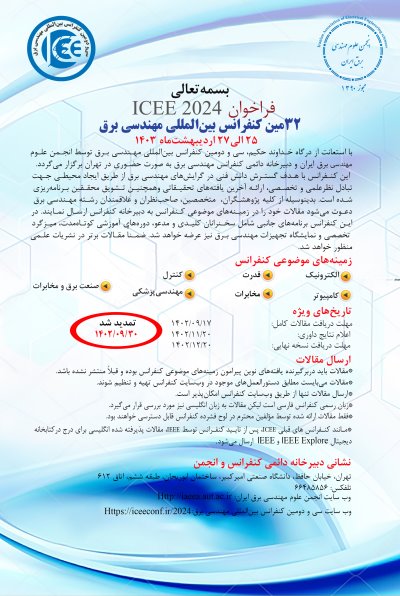0% Complete

نویسندگان :
کلمات کلیدی :
چکیده :
لیست مقالات بایگانی شده
Atefe Shahsavaripour - Mohammad Hossein Badiei - Leila Yousefi - Ahmad Kalhor
Hossein Mohammadi Firozjae - Javad Zeraatkar Moghaddam - Mehrdad Ardebilipour
Mohammad Hasan Rezaei - Mohammad Hasan Yavari
سیدمحمدرضا احمدانجوی - طاهره بینازاده
Pedram Lamei - Mohammad Haeri
Seyed Hamid Khalkhali - Mohsen Taghizadeh Kejani - Ali Asghar Razi Kazemi
Mehran Nemati - Hamed Karimi - Alireza Siadatan - Maryam Sepehrinour
محمدرضا شمسیان - فریدون بهنیا
Mohammad jafar Gholami Kenari - Ehsanollah Kabir
Kamalodin Arik - Mahmood Akbari - Amin Khavasi





